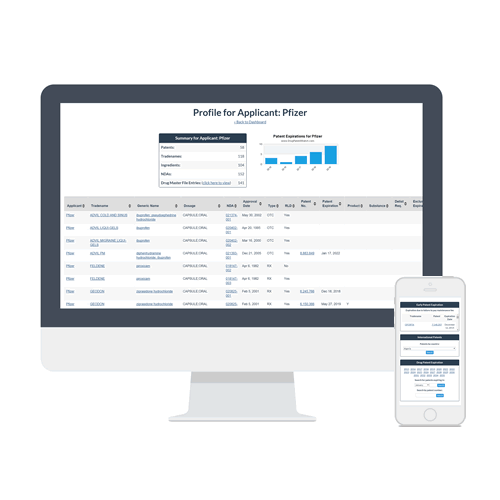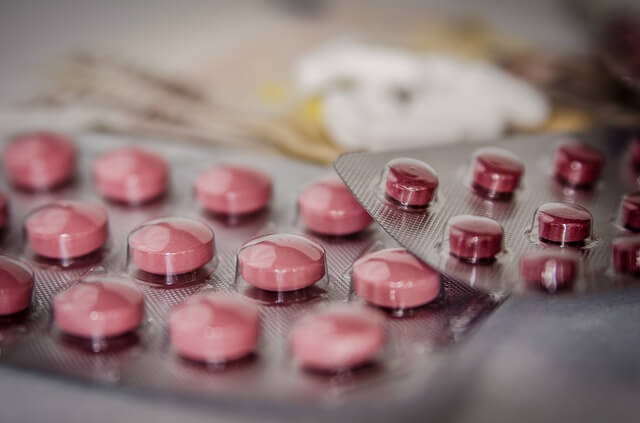Generic drugs play a crucial role in providing affordable healthcare options to millions of Americans. The development of these cost-effective alternatives to brand-name medications is influenced by a myriad of factors, ranging from regulatory policies to market dynamics. Let’s dive deep into the intricate web of elements that shape the generic drug landscape in the United States.
Table of Contents
The Regulatory Framework
FDA Approval Process
The journey of a generic drug from conception to market is heavily regulated by the Food and Drug Administration (FDA). The FDA’s stringent approval process ensures that generic drugs are as safe and effective as their brand-name counterparts. This process, while necessary, can be time-consuming and costly for manufacturers, influencing their decision to develop certain generic drugs.
Hatch-Waxman Act
The Drug Price Competition and Patent Term Restoration Act of 1984, commonly known as the Hatch-Waxman Act, has been a game-changer in the generic drug industry. This legislation streamlined the approval process for generic drugs and provided incentives for their development. The act allows generic drug manufacturers to file Abbreviated New Drug Applications (ANDAs), which don’t require them to repeat costly animal and clinical research on ingredients or dosage forms already approved for safety and effectiveness.
Patent Expiration and Exclusivity Periods
One of the most significant factors influencing generic drug development is the expiration of patents on brand-name drugs. When a patent expires, it opens the door for generic manufacturers to enter the market. However, the timing of patent expiration and various exclusivity periods granted to brand-name manufacturers can complicate this process.
“The expiration of a patent is like a starting gun in a race. Generic manufacturers have been waiting at the starting line, and when that gun goes off, they’re ready to sprint to market.” – Dr. Aaron Kesselheim, Professor of Medicine at Harvard Medical School
Economic Factors
Market Demand and Potential Profitability
The decision to develop a generic drug is heavily influenced by market demand and potential profitability. Manufacturers are more likely to invest in developing generics for high-volume, high-cost drugs where they can capture a significant market share.
Development and Manufacturing Costs
The costs associated with developing and manufacturing generic drugs can be substantial. While these costs are generally lower than those for brand-name drugs, they still represent a significant investment for manufacturers. Factors such as the complexity of the drug formulation and the need for specialized manufacturing facilities can impact these costs.
Competition and Pricing Dynamics
The generic drug market is highly competitive, with multiple manufacturers often producing the same drug. This competition can lead to significant price reductions, which benefits consumers but can also impact manufacturers’ profitability. The first generic to market often enjoys a period of higher prices, incentivizing companies to be first in line.
Technological Advancements
Formulation Techniques
Advancements in drug formulation techniques can influence the development of generic drugs. Some brand-name drugs have complex formulations that are challenging to replicate, which can delay or prevent the development of generic versions.
Analytical Methods
Improved analytical methods for demonstrating bioequivalence have made it easier for manufacturers to prove that their generic versions are equivalent to brand-name drugs. This has facilitated the development of generics for drugs that were previously difficult to replicate.
Legal and Intellectual Property Considerations
Patent Challenges
Generic drug manufacturers often challenge the patents of brand-name drugs in an attempt to bring their products to market sooner. These legal battles can be costly and time-consuming but can also lead to significant rewards if successful.
Settlements and Pay-for-Delay Agreements
Some brand-name manufacturers enter into agreements with generic manufacturers to delay the entry of generic drugs into the market. While these agreements have faced legal scrutiny, they continue to influence the timing of generic drug development.
Supply Chain and Raw Material Availability
Active Pharmaceutical Ingredient (API) Sources
The availability and cost of active pharmaceutical ingredients (APIs) can significantly impact generic drug development. Many APIs are sourced from overseas, particularly from India and China, which can introduce supply chain risks and quality control challenges.
Manufacturing Capacity
The availability of manufacturing capacity, both in-house and through contract manufacturing organizations (CMOs), can influence a company’s ability to produce generic drugs at scale.
Regulatory Incentives and Barriers
Priority Review Vouchers
The FDA’s Priority Review Voucher program, which rewards companies for developing drugs for neglected tropical diseases or rare pediatric conditions, can indirectly influence generic drug development by affecting the timing of brand-name drug approvals.
User Fee Programs
The Generic Drug User Fee Amendments (GDUFA) have provided the FDA with additional resources to speed up the review process for generic drugs. However, the associated fees can also pose a barrier to smaller manufacturers.
Market Access and Distribution Channels
Pharmacy Benefit Managers (PBMs)
The role of PBMs in negotiating drug prices and determining formulary placement can significantly impact the success of generic drugs in the market. Favorable formulary placement can drive demand for specific generic products.
Healthcare Provider and Patient Acceptance
The willingness of healthcare providers to prescribe generic drugs and patients to accept them can influence manufacturers’ decisions to develop certain generics. Education and awareness programs play a crucial role in promoting generic drug acceptance.
Global Market Dynamics
International Trade Agreements
International trade agreements can affect the importation of generic drugs and APIs, influencing the cost and feasibility of generic drug development in the US.
Regulatory Harmonization Efforts
Efforts to harmonize regulatory requirements across different countries can facilitate the development of generic drugs for global markets, potentially making it more attractive for manufacturers to invest in generic drug development.
Key Takeaways
- The development of generic drugs in the US is influenced by a complex interplay of regulatory, economic, technological, and legal factors.
- The FDA’s approval process and the Hatch-Waxman Act provide the regulatory framework for generic drug development.
- Patent expiration and exclusivity periods are crucial triggers for generic drug development.
- Market demand, development costs, and competition significantly impact manufacturers’ decisions to develop generic drugs.
- Technological advancements in formulation and analytical methods can facilitate or hinder generic drug development.
- Legal challenges and intellectual property considerations play a significant role in the timing of generic drug market entry.
- Supply chain considerations, including API sourcing and manufacturing capacity, are critical factors.
- Regulatory incentives and barriers, such as user fee programs, can influence generic drug development.
- Market access, distribution channels, and global market dynamics also play important roles in shaping the generic drug landscape.
FAQs
- Q: How long does it typically take for a generic drug to be developed and approved in the US?
A: The development and approval process for a generic drug can vary widely, but it typically takes 3-5 years from the start of development to FDA approval. However, this timeline can be shorter or longer depending on the complexity of the drug and any regulatory or legal challenges encountered. - Q: Are generic drugs always cheaper than brand-name drugs?
A: While generic drugs are generally less expensive than brand-name drugs, the price difference can vary. In some cases, especially when there’s limited competition, generic drugs may not be significantly cheaper. However, on average, generic drugs cost 80-85% less than their brand-name counterparts. - Q: Can a generic drug be developed before the brand-name drug’s patent expires?
A: Generic drug manufacturers can begin the development process before a brand-name drug’s patent expires. However, they cannot market the generic version until the patent and any exclusivity periods have ended, unless they successfully challenge the patent or reach an agreement with the brand-name manufacturer. - Q: How does the FDA ensure that generic drugs are as effective as brand-name drugs?
A: The FDA requires generic drug manufacturers to demonstrate that their product is bioequivalent to the brand-name drug. This means the generic must deliver the same amount of active ingredient into a patient’s bloodstream in the same amount of time as the brand-name drug. - Q: What role do Pharmacy Benefit Managers (PBMs) play in the generic drug market?
A: PBMs play a significant role in the generic drug market by negotiating prices with drug manufacturers, determining which drugs are included in formularies, and influencing which generic drugs are dispensed to patients. Their decisions can significantly impact the demand for and success of specific generic drugs in the market.
References:
: https://www.fda.gov/drugs/generic-drugs/generic-drug-facts
: https://www.fda.gov/drugs/abbreviated-new-drug-application-anda/hatch-waxman-letters
: https://www.ncbi.nlm.nih.gov/pmc/articles/PMC3204941/
: https://www.iqvia.com/insights/the-iqvia-institute/reports/the-global-use-of-medicine-in-2019-and-outlook-to-2023
: https://www.gao.gov/products/gao-16-706
: https://www.healthaffairs.org/doi/10.1377/hlthaff.2018.05205
: https://www.nature.com/articles/nrd.2018.168
: https://www.fda.gov/drugs/development-approval-process-drugs/bioequivalence-studies-submitted-andas
: https://www.ftc.gov/news-events/topics/competition-enforcement/pay-delay
: https://www.ftc.gov/news-events/topics/competition-enforcement/pay-delay
: https://www.fda.gov/news-events/congressional-testimony/safeguarding-pharmaceutical-supply-chains-global-economy-10302019
: https://www.gao.gov/products/gao-16-706
: https://www.fda.gov/about-fda/center-drug-evaluation-and-research-cder/tropical-disease-priority-review-voucher-program
: https://www.fda.gov/industry/fda-user-fee-programs/generic-drug-user-fee-amendments
: https://www.healthaffairs.org/doi/10.1377/hlthaff.2018.05205
: https://www.fda.gov/drugs/resources-you-drugs/generic-drugs
: https://www.ncbi.nlm.nih.gov/pmc/articles/PMC6509348/
: https://www.fda.gov/drugs/generic-drugs/international-generic-drug-regulators-programme-igdrp


